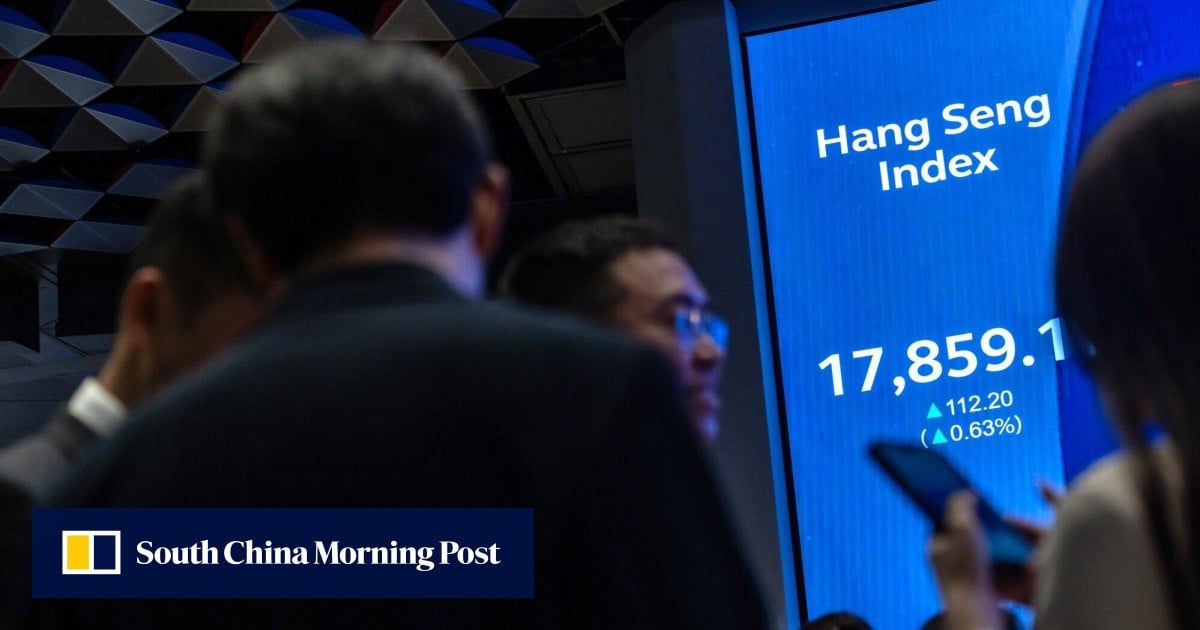Green Finance: 2 newly launched Hong Kong-based registries to boost carbon credits trade in Asia, founders say
Two Hong Kong-based and Asia-focused carbon registries launched recently will help to lower barriers for the trading of credits claimed by projects aimed at reducing greenhouse gas emissions in the region, their founders said.
Asia Carbon Institute (ACI), which was founded last year by John Lo, Shell’s Singapore-based general manager of trading and supply operations and liquefied natural gas, has launched a non-profit carbon credits registry. The initiative, started last week, is a personal initiative unrelated to the oil and gas giant.
“Asia, factory of the world … is still lacking in regulatory push to incentivise carbon reduction and removal projects investment,” he told the Post. “Voluntary carbon credits trading is one way to fill the gap.”
Three days before the launch of ACI’s registry, Hong Kong-based Carbonbase, a provider of technology for measuring, reducing and offsetting carbon emissions, unveiled Global Climate Registry in partnership with sustainability venture-capital firm ImpactX and distributed-ledger technologies promoter HBAR Foundation.
John Lo, founder of Asia Carbon Institute, pictured in Causeway Bay on September 4, 2023. Photo: Jonathan Wong
Both registries aim to reduce the long processing times Asian project developers face when applying to have their projects’ credit claims accepted by established overseas registries such as Washington-based Verra and Switzerland-based Gold Standard.
“I heard that some project developers have to wait for over 12 months and still have not got their credits registered,” Lo said.
Such registries are databases that track the ownership, issuance, retirement and transfer of carbon credits, as well as details of the projects on which the credits are generated. The sale of the credits generates funding for the projects, while the buyers use them to offset their carbon footprints.
Advertisement
Voluntary credits traded globally jumped nearly fourfold to US$2 billion in 2021 from 2020, according to data compiler Ecosystem Marketplace.
The launch of these two registries is also significant because Hong Kong harbours ambitions of developing into a regional carbon-trading centre, as part of its role as a regional hub for green and sustainable finance.
Hong Kong’s bourse also launched a voluntary carbon trading platform last October, but it remains in early-stage development.
A lack of trust in the level of additional emissions reduction benefits of the projects backing the credits, beyond levels already achieved by widely commercialised technologies, has been a barrier, ACI’s Lo said.
To build the credibility of its registry’s standards, Lo said project proponents will have to pass ACI’s vigorous “ additionality” test, so that credit revenues only finance innovative technologies resulting in climate mitigation above and beyond decarbonisation mandated by policies and corporate efforts already under way.
Advertisement
“Our additionality test will be conducted by a panel of international experts according to an independent and open system,” Lo said. “We aim to achieve what Verra and Gold Standard are offering when it comes to standards setting.”
The ACI panel includes Tulane University earth and environmental sciences professor Daniel Friess, GHG Management Institute director of measurement Olia Glade, Hong Kong University of Science and Technology environment and sustainability chair, Prof Alexis Lau Kai-hon, and Singapore energy and sustainability expert Victor Nian.
China’s coal power emissions per person grew most in G20 between 2015 and 2022
China’s coal power emissions per person grew most in G20 between 2015 and 2022
“With the help of these experts, we also aim to increase and make public new carbon reduction and removal methodologies, on which credits can be generated,” Lo said.
Advertisement
Lo said ACI’s registry will start accepting credit claims submissions next month, and has so far received interest from more than 20 project owners. It will establish offices in Hong Kong and Singapore.
Meanwhile, Carbonbase will address credibility concerns by deploying blockchain technology to ensure projects’ emissions data is immutable and auditable, CEO Max Song said.
“The [concern] with the carbon market space now is that the credits of the purchasers are not legitimate, so putting them on the blockchain is a very direct way to address some of these issues,” he told the Post.
Advertisement
“We will also have a technical steering committee … and we will work with academic organisations around the world on carbon-reduction methodologies research.”
China coal spree continues at frantic pace despite 2030 carbon pledge: report
China coal spree continues at frantic pace despite 2030 carbon pledge: report
Carbonbase aims to start granting credits by year-end, Song said. Its registration service will be a “for-profit social impact” operation.
Advertisement
It is too early to tell whether the new registries will bring additional benefits to the market, said Ben McQuhae, founder of law firm Ben McQuhae & Co and co-founder of the Hong Kong Green Finance Association.
“While we welcome the announcements and Asia-based representation in a US-dominated space, experience reminds us to embrace the launch of new voluntary market solutions with cautious optimism,” he said. “We need to see what solutions and innovations they can actually bring and whether the market and market conditions are kind to them.”
Shidan Gouran, chairman of carbon-trading platform Bluesphere Carbon, which is merging with carbon credits broker Climate Carbon, welcomed the launches.
The focus should be less on the number or location of registries and more on the robustness of the methodologies they employ to qualify projects for credits, he said.
“We are interested in whether these methodologies are accepted in compliance or quasi-compliance carbon markets,” Gouran said. “The more registries that meet these criteria, the better for the ecosystem.”
Advertisement





